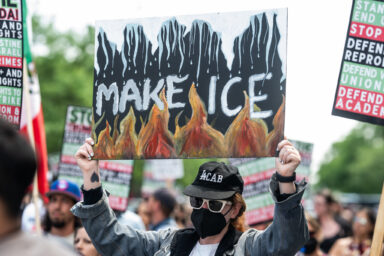Our mission at whowhatwhy.org is to focus not so much on what is reported, or discussed, but what is ignored.
So, let’s get going with the first of our post-Labor Day musings:
A recent New York Times article about Obama and Iraq included this brief mention:
Mr. Obama called Mr. Bush Tuesday morning from Air Force One as he was enroute to Fort Bliss, White House officials said. The two spoke “just for a few moments,” Benjamin Rhodes, deputy national security adviser for strategic communications, told reporters aboard the plane, declining to give any additional detail about the conversation…..
What do you suppose that was about? Why would Obama call Bush? Why “just for a few moments?” Why did the Times reporters feel it worth tossing into the article? As a mere curiosity? Because Rhodes raised the matter? What is a “deputy national security adviser for strategic communications—and was this a strategic communication?
Presumably, Obama called Bush—and, more importantly, publicized the fact—because in a tough midterm election year he would like to emphasize the bipartisan nature of his foreign policy.
But it would be nice to know more about how and why these tidbits emerge.
It would also be nice to know more about the interactions between presidents and former presidents. Back in January, there was another Bush-Obama conversation, a longer one, and in person, and involving other members of the Bush family. It got almost no attention.
Under the headline, Bush Is in Town, So He Stops By the White House, the Times’ blog reported that
A day after meeting with House Republicans, President Obama sat down on Saturday with one of the party’s elders as he met at the White House with the first former President Bush.
Spokesmen for the White House and for Mr. Bush said the meeting was just a private visit…”The meeting was a courtesy call between the presidents,” said Jim Appleby, a spokesman for Mr. Bush. “President Bush is in town on personal business. There was no agenda for the visit this morning.”
Mr. Bush brought with him his son, former Gov. Jeb Bush of Florida. It was the first meeting between the two presidents since Mr. Obama traveled to Texas last fall for a national service event with Mr. Bush. But it was the president’s second encounter with the Bush family in recent weeks, following his meeting with the second President Bush to talk about relief efforts for Haiti.
One could reasonably ask for some more reportage on a few issues:
-What sort of “personal business” does the octogenarian elder George Bush have in Washington? How does he spend his time? (As I lay out in my book Family of Secrets, Bush Senior had a secret past working with the CIA many years before he was named as the purportedly outsider director of the agency. I also extensively document the larger network of which HW Bush is part —a crucial story about power in America which is continually swept under the rug.)
-Why did he bring Jeb? HW’s second son has become increasingly visible as a GOP elder statesman, prompting some commentators and reporters to note that he might be positioning himself for a presidential try.
-How accepting are families like the Bushes that they are no longer in power? To what extent do they and their allies and backers work to influence events once they’ve left the White House?
To answer that in part, let’s consider that Obama has kept on Robert Gates, who was George W. Bush’s Defense Secretary, and CIA director under HW Bush. Gates has been a longstanding member of the Bush circle, though unlike HW, his lifelong role with the CIA is a matter of public record.
More from the recent Times piece:
“I am not saying that all is, or necessarily will be, well in Iraq,” Mr. Gates, who is one of Mr. Obama’s most influential advisers, told [a convention of the conservative, military-minded group, the American Legion]….
Why mention that Gates is “one of Mr. Obama’s most influential advisers”? Because he has much more power than some past defense secretaries, and because he so seamlessly made the transition from the old order to the new, and supposedly contrary, order?
As long as we’re looking at what is left unsaid, let’s consider this bit from the recent Times piece:
….. In Washington, a senior intelligence official told reporters that Al Qaeda in Mesopotamia is estimated to have just 10 percent of the strength it had during the peak of its manpower in 2006 and 2007. The official declined to provide the actual figures that the estimate was drawn from, and he said he expected the group would have a core of fighters inside Iraq for “a long time to come.” The senior official, who declined to be identified because he was discussing classified intelligence assessments….
If a senior official thinks that what he has to say is important enough to telegraph it through the media to the public, and if that official won’t provide actual figures, one wonders about that final line above—“declined to be identified because he was discussing classified intelligence assessments.”
Practically speaking, what does that mean? That he shouldn’t be talking about it at all? That this was not a carefully-planned event, where he talked to multiple “reporters”? The Agency should be able to openly say what it has to say, as long as it is going to make claims. And reporters should not be funnels for this type of unaccountable statement, which so clearly is intended to influence opinion.
And while we’re at it, what are the Bushes up to?


